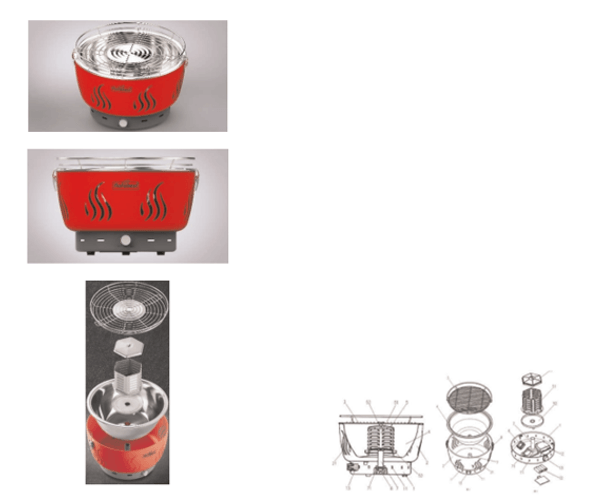
General Court confirms third parties can benefit from grace period when registering designs
In case you missed it, back in April the General Court confirmed the ability for third parties to rely on the prior design disclosure exemption under article 7(2) of the Community Design Regulation (“CDR”). Its decision in Activa – Grillküche v EUIPO – Targa (Appareil pour griller) (Case T-757/21) exemplifies the contextual approach that the courts will take when considering prior disclosures and reinforces the notion that the purpose of this provision is to protect the interests of the designer.
The full judgment can be read here.
Background
The case which came before the General Court concerns the ‘grace period’ provided to designers under Article 7(2) CDR. This provides that:
“A disclosure shall not be taken into consideration for the purpose of applying Articles 5 and 6 and if a design for which protection is claimed under a registered Community design has been made available to the public:
(a) by the designer, his successor in title, or a third person as a result of information provided or action taken by the designer or his successor in title; and
(b) during the 12-month period preceding the date of filing of the application or, if a priority is claimed, the date of priority.”
Guangzhou Hungkay (“Hungkay”) was the designer and owner of a portable grill and registered the design as a utility model in China in 2015. In 2016, a company which Hunkay supplied products to, Targa GmBH (“Targa”), applied for the registration of a Community design which was practically identical to Hungkay’s.
Hungkay and Targa entered into negotiations and Hungkay agreed to transfer all IP rights in the utility model for the EU to Targa, with retrospective effect to 2014 – prior to the date of the Chinese registration. The employee of Hungkay who designed the grill also assigned their rights in the IP to Hungkay with retrospective effect to the same date.

Registered Community Design Chinese utility model
Activia Grillkuche GmBH (“Activia”) filed an application for invalidity of Targa’s registered Community design (“RCD”) on the ground that the design lacked novelty and individual character. Activia contended that the prior disclosure of Hungkay’s Chinese utility model meant that the design had been made available to the public prior to Targa’s RCD application.
The EUIPO (Invalidity Division) rejected Activia’s application, as did the Board of Appeal. Activia appealed to the General Court.
Decision
The General Court upheld the decision of the Board of Appeal. In doing so, the Court acknowledged that the Chinese utility model had been publicly disclosed within the meaning of the CDR and that, on these facts, the exemption in Article 7(2) applied.
In particular, the Board of Appeal were right to find that “since [Hungkay] disclosed the Chinese utility model by publishing it in China in June 2015 and the intervenor, acting as successor in title to [Hungkay] filed an application for registration of an identical Community design… less than twelve months later, the exception provided for in Article 7(2) was applicable”.
The General Court noted the contractual agreements made between the parties in 2016 to support this finding were legitimate and that the activity was aligned with the purpose of Article 7(2) CDR, namely, to protect designers and allow them time to test their designs before applying for registrations.
Comment
The case provides useful commentary that a third party may rely on the grace period where legitimate contractual agreements are later put in place and that third party becomes a successor in title. It is notable that in this case, Hungkay and Targa were already involved in a business relationship and had discussed the design before entering into such agreements, debunking any risk of fraudulent or collusive behaviour between them.
As to the issue of their retrospective effect, the General Court maintained that it is perfectly within the parties’ rights, not excluded under the CDR, and indeed fundamental to contractual freedom, to enter into agreements with retrospective effect. The General Court was also satisfied that there was no risk of fraud given the pre-existing business relationship between the parties and the chronology in which the events occurred.







